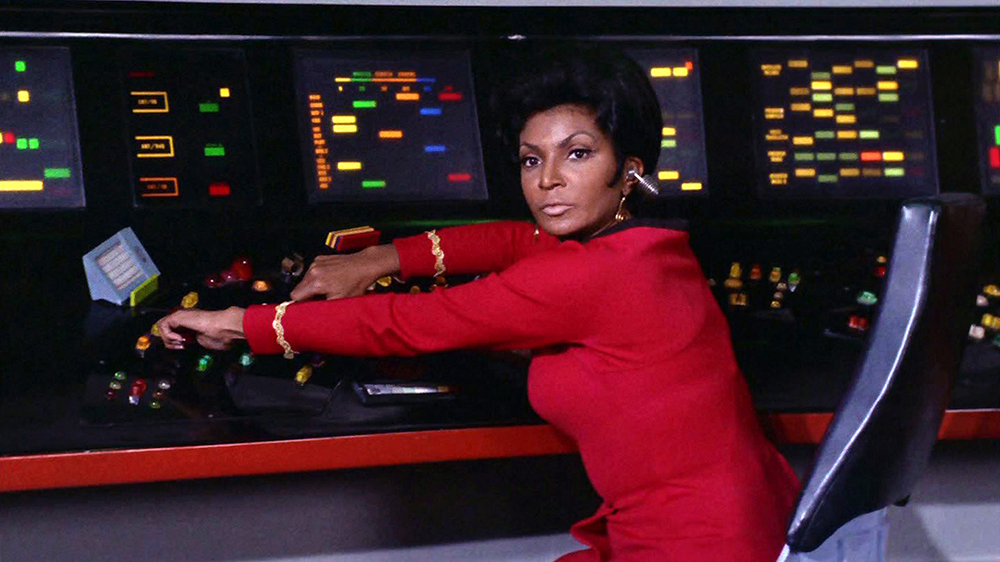This piece was submitted from a member of our enthusiastic community of readers. If you’re interested in sharing your opinion on any cultural, political or personal topic, create an account here and check out our how-to post to learn more.
Making history is something many strive to achieve. But truly leaving your mark on history means providing for the future, as well. Our ever-growing representation in science and television would not be where it is today without the efforts of one strong, Black space traveler.
All of our Blerds out there, we need to take a moment and pay homage to a legend. She not only blazed her own unique trail, but also provided countless opportunities for underrepresented peoples on the screen and off. Nichelle Nichols garnered the role of the feisty Lt. Nyota Uhura, a fixture on Star Trek’s bridge, as she used the platform to uplift others and made history every step of the way.
Nichols' first feat was becoming the first African- American woman to have a continuing co-starring role on television. It doesn’t get much bigger than this. As a result of her casting, many more acting opportunities opened up for women of color. She was celebrated by Ebony magazine in 1967 declaring her character as “the first Negro astronaut, a triumph of modern-day TV over modern-day NASA.” She forced the television and aerospace industries to recognize the unique talents people of color could bring.
It would be easy to think that her place in television history was cemented by the end of one season, but her story doesn’t stop there. She left her stamp in a huge way just two years later. In 1968 Nichols and the show’s lead, Captain Kirk, played by William Shatner, shared the kiss that changed television forever. The least known detail of the whole story is that it almost didn’t happen; if it weren’t for intervention from one hardcore Trekkie we all know very well, then we could’ve kissed the smooch goodbye.
Who was that fan who requested a meeting with Nichols to convince her to stay on the show? It was none other than Dr. Martin Luther King Jr. himself. Nichols was considering leaving the show to follow her dreams on Broadway, but Dr. King knew better than to let that happen. He requested that she stay with the program because he knew that the importance of the role delved much deeper than the surface.
Just one year before the epic kiss, the U.S. Supreme Court ruled interracial marriage legal, much to the chagrin of the country. King had no way of knowing the kiss was written for the upcoming season’s script, but he did know Nichols’ platform could be used to help further our people. However, his foresight could’ve never imagined the lengths her efforts would go.
She used her brand and network from the legendary series to establish Women in Motion, Inc. in 1975. She was able to win several government contracts to further educational programs for minorities in space and science fields. In just two short years she was appointed to the board of directors for the National Space Institute. The same year, she gave a speech criticizing the lack of diversity within NASA’s space program; she was not aware that several of NASA’s top administrators were in the audience. They challenged her to not only voice her concerns, but to place some action behind her words.
NASA tasked her with leading an astronaut recruitment project for the space shuttle program. She traveled across the country encouraging young people of underrepresented communities to learn more about space and science. Her campaign led to the recruitment of several NASA legends including: Sally Ride, the first American woman in space, Guinon Bluford, the first African American in space and Mae Jemison, the first African American woman in space.
Nichelle Nichols could have never predicted how large an impact she would leave on our country. She simply played a space traveler set in a time where others differences are looked at as strengths instead of divisors. What makes Nichols’ story incredible is that she did her best to implement those views and virtues in her present time regardless of the social climate on our small blue marble.
